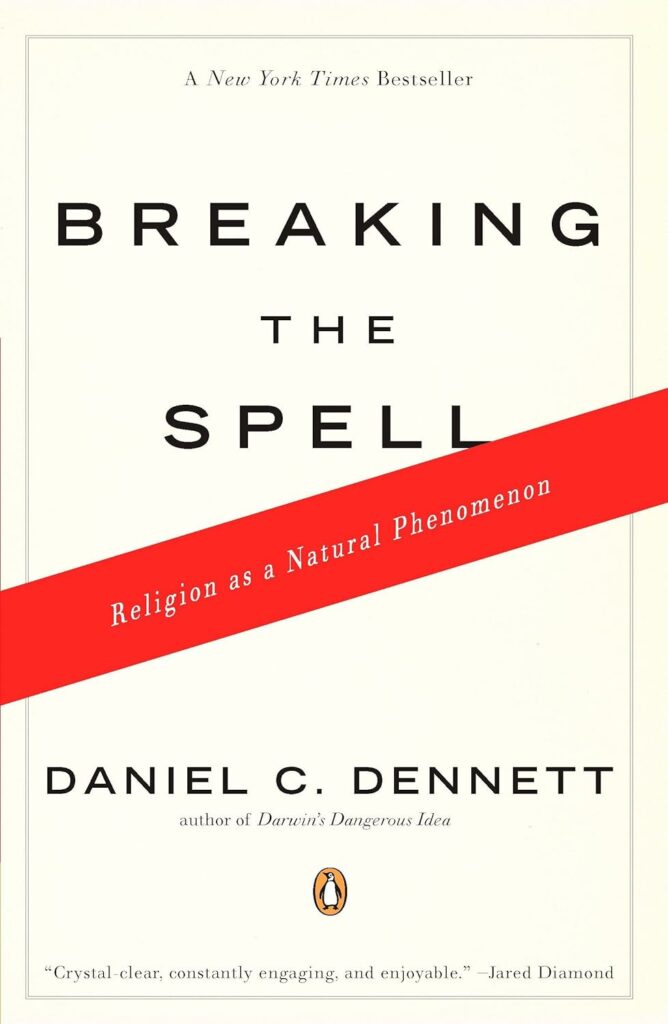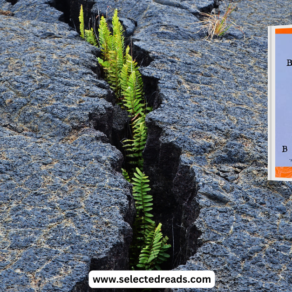Breaking the Spell book is the topic of our blog post today!
Dennett advocates the scientific approach in the study of human phenomenon including religion which he categorized as natural phenomenon. For Dennett, religion is a socially constructed concept worthy of scientific investigation and inquiry as is the case with any other social phenomena. That being said, Dennett recognizes the controversy that such a claim might engender especially among those who view religion as the realm of the sacred, one that is not amenable to scientific study.
Dennett is well aware of the treacherous waters he treads when he discusses a touchy topic such as religion. As he stated :
“By asking for an accounting of the pros and cons of religion, I risk getting poked in the nose or worse, and yet I persist. Why? Because I believe that it is very important to break this spell and get us all to look carefully at the question with which I began this section: are people right that the best way to live a good life is through religion?”
This discussion reminds me of the late Egyptian scholar Nasr Hamid Abu Zaid and his predicament following his humanist and hermeneutic views that the Quran is a historical text and that it can be studied and decoded using tools of (critical) discourse analysis. Because of his humanist and hermeneutic views, Abu Zaid was tried in a family court in Egypt and divorced him forcibly from his wife on claims of his apostasy. Abu Zaid, under mounting threats to his life from fundamentalists, ended up living with his wife in exile, in the Netherlands until his death in 2010.
Dennett’s approach to religion is purely scientist. Indeed, one of the central arguments of Dennett’s book is that religion, as a universal social phenomenon, should be subject to rigorous scientific study. This is so because religion not only occupies a central place in human life, but also because for many individuals,, as Dennett contended, ” nothing matters more than religion”.
For Dennett, two spells need to be broken: the first one is the “taboo against a forthright, scientific, no-holds-barred investigation of religion as one natural phenomenon among many”, and the second spell is ” the life-enriching enchantment of religion itself”. In doing so, however, Dennett does not advocate a free-fall kind of approach to breaking with these spells, especially that of religion. In multiple instances in the book, Dennett recognizes the importance of religion for many people and the balancing function it plays in their lives and that interfering with this balance using scientism could result in what he describes as a “terrible calamity”.
This is in fact congruent with the conclusions reached in a research published in the Pew Research Center which found based on evidence from the data gathered from participants in the United States and some countries in Europe, that religious participation does “make a difference in some-but not all” areas related to people’s health, happiness, and communal engagements.
But what is religion anyway?
In Breaking the Spell, Dennett defines religions as “social systems whose participants avow belief in a supernatural agent or agents whose approval is to be sought.”
In defining religion, Dennett emphasizes two main elements: the supernatural and community. For him, the concept of religion, that is organized religion, requires the existence of an immutable, eternal, and ‘supernatural agent’ who does not act in real time and does not have to be anthropomorphic.
Dennett illustrated this point with the example of Elvis Presley saying that as long his fans view him as a moral being with anthropomorphic features, their cult is not religion but as soon as they endow him with supernatural powers then “they are indeed on the way to starting a new religion”.The second element Dennett emphasizes is community. A religion is community based, a social system. For him, unless individual believers are part of a larger community of fellow believers, they can not be considered to be practicing any religion.
It is worth noting here that Dennett’s emphasis on community, as he himself stated, is ‘at odds’ with William James’ view of religion. James places much emphasis on the individual solitude part in the religious practice. According to William James, as quoted by Dennett. religion is “the feelings, acts, and experiences of individual men in their solitude, so far as they apprehend themselves to stand in relation to whatever they may consider the divine (1902, p. 31)”.
Is religion a natural phenomenon?
Another central idea in Breaking the Spell is that of religion as a natural phenomenon. Dennitt went to great lengths to articulate what he exactly means by the word ‘natural’, which of course, means nothing else than phenomenon that conforms to the laws of biology and physics and one that does not include miracles or the supernatural. As he declared:
“I might mean that religion is natural as opposed to supernatural, that it is a human phenomenon composed of events, organisms, objects, structures, patterns, and the like that all obey the laws of physics or biology, and hence do not involve miracles. And that is what I mean.”
Apparently, Dennett views scientism and rationalism as the be all and end all of human knowledge. Even in spiritual and religious phenomena that are complex and inherently unconducive to the intellectual rigors of scientific inquiry, Dennett still clings to the hope of finding rational and scientific explanations.
In fact, Dennett’s no-holds barred scientist approach was the subject of scathing critic from Leo Wieseltier who, in a piece published in the New York Times Book Review, regards the view that scientism has answers to all questions both physical and mental as “one of the dominant superstition of our day”.





